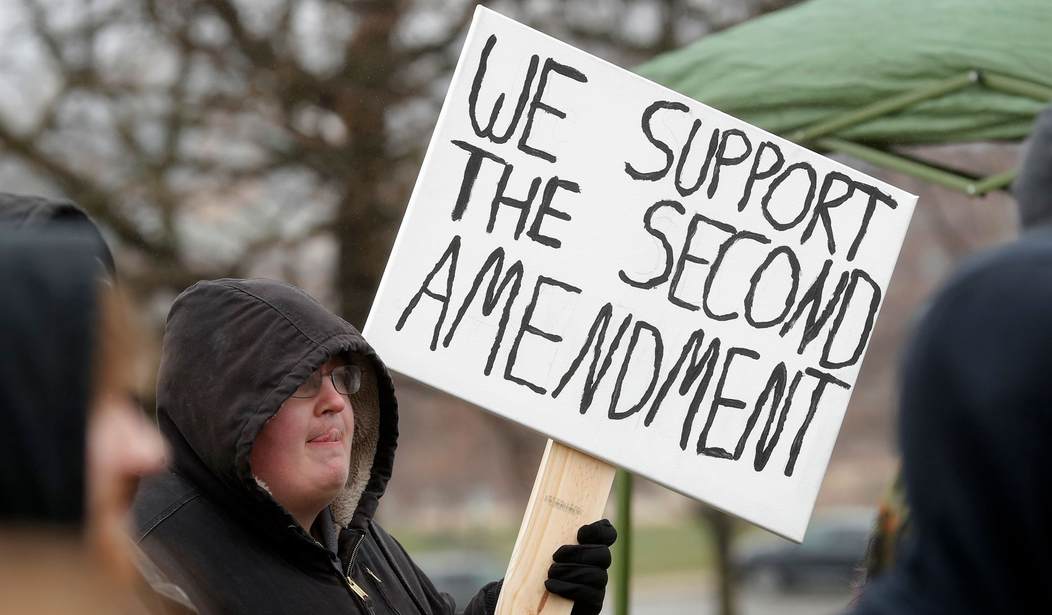While thousands of towns, counties, and even states have adopted Second Amendment Sanctuary language over the past four years or so, we haven’t seen much of a legal pushback until very recently. After the state of Missouri’s Second Amendment Preservation Act went into effect earlier this year the city and county of St. Louis filed suit along with one other county, and the Biden administration expressed support for the lawsuit. The judge overseeing the case denied a motion to block the law from being enforced however, and it remains in effect for the time being.
The other legal conflict over Second Amendment Sanctuary language is just starting to percolate out in Oregon, where several counties have put 2A Sanctuary ordinances in place, either through voter referendums of action by county commissioners. Oregon Gov. Kate Brown and Attorney General Ellen Rosenblum sued two counties earlier this month, claiming that the ordinances “seek to nullify new statewide gun safety laws,” even though Rosenblum didn’t have any issue in the past with prosecutors deciding they weren’t going to charge low-level marijuana cases. Apparently some laws don’t have to be enforced, but new “gun safety” laws don’t get an exemption.
While the state’s legal action has been limited to Yamhill and Harney counties, one of the state’s other Second Amendment sanctuaries is now putting itself in the state’s crosshairs by sending a message of its own to Brown and Rosenblum.
The Malheur County Court is expected to send a letter to Oregon Gov. Kate Brown and Attorney General Ellen Rosenblum regarding its status as a Second Amendment Sanctuary, which has been in place since the court adopted an ordinance deeming it so in 2015.
Malheur County Sheriff Brian Wolfe on Oct. 6 urged members of the court to lend their support after learning that Rosenblum had just filed lawsuits against Yamhill and Harney counties regarding their resolutions passed in order to protect Second Amendment rights.
The Attorney General has asked circuit court judges in those counties to order that state gun safety laws remain fully in force and fully enforceable, stating that rules in those counties allow a person to sue or seek prosecution of officials who enforce state gun laws.
Wolfe said he was “very disappointed” in the attorney general’s decision to do that and stated that he would like to see the County Court take a leadership role in addressing it in a letter “expressing the need for local control on these types of things.”
“The demographics of Malheur County are sure a lot different that in Western Oregon,” Wolfe told the court. “Our way of thinking is different. Our way of life is different. There is definitely a cultural divide between the two.”
I have to say, I’m not really a fan of the “local control” argument that the Malheur County officials are making. And it’s not just the sheriff making that argument.
Malheur County Stephanie Williams was expected to reach out to Harney and Yamhill counties to see how they are addressing the lawsuit.
“We have a sanctuary ordinance,” Williams noted. “We believe in it.”
Commissioner Ron Jacobs stated that he was in favor of sending a letter to Brown and Rosenblum “to express our desire to have more local control.”
County Court members agreed to have Williams draft up a letter so they could “keep marching forward” on the matter.
Here’s the problem with arguing that the enforcement of gun control laws is simply a matter of local control: it plays into the hands of gun control activists, and it’s inconsistent with the protections afforded an enumerated constitutional right.
Gun control activists love the argument that localities should be able to set their own gun control laws, as long as they’re more strict than the state laws already on the books. That’s exactly what they’ve done by weakening or repealing firearms preemption laws in states like Virginia and Colorado, and they’d be thrilled if they could do the same in Oregon.
Local control is what led to Washington, D.C. and Chicago’s ban on handguns. It’s put “assault weapons” bans on the books in several Chicago suburbs, and in Virginia its led to new bans on the lawful carrying of firearms in parks and government buildings in several communities. “Local control” may sound good in localities that respect the Second Amendment, but I guarantee that the Second Amendment means something very different to the average resident of Malheur County compared to the Portlandiers living in Multnomah County.
But, having said that, I’d remind the lawmakers and law enforcement in Malheur County of one simple fact: they have the power, the authority, and the discretion to prioritize. They can’t be expected to arrest and prosecute every single person for every minor offense every police officer or sheriff’s deputy sees. The court system would grind to a halt if they did! The idea that the state of Oregon can somehow compel a county to strictly enforce a gun control law is kind of ludicrous on the face of it. Are they going to impose quotas for arrests and prosecutions? Are they going to send in the State Police to try to enforce the state’s new gun storage law? And how would that work, exactly?
We’ll see what the courts have to say about these Second Amendment Sanctuaries, but I don’t see any easy way for the state to compel counties to enforce gun control laws, even if a judge tells them to do so. Oregon’s Attorney General may end up regretting poking this particular bear, because a favorable court ruling won’t put an end to the state’s Second Amendment Sanctuary saga. It will only mean the start of a new chapter, and one that will inevitably deepen the conflict between the urban and rural parts of the state.









